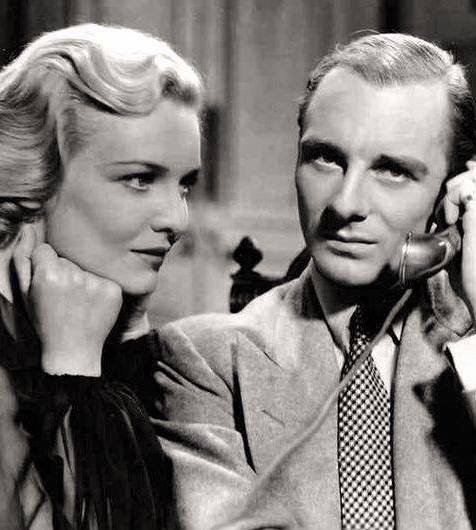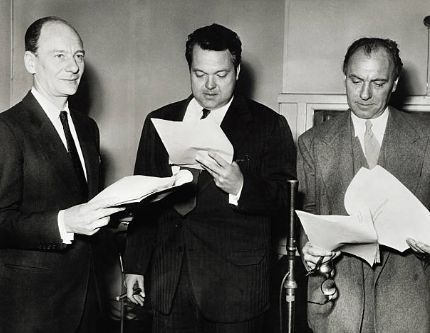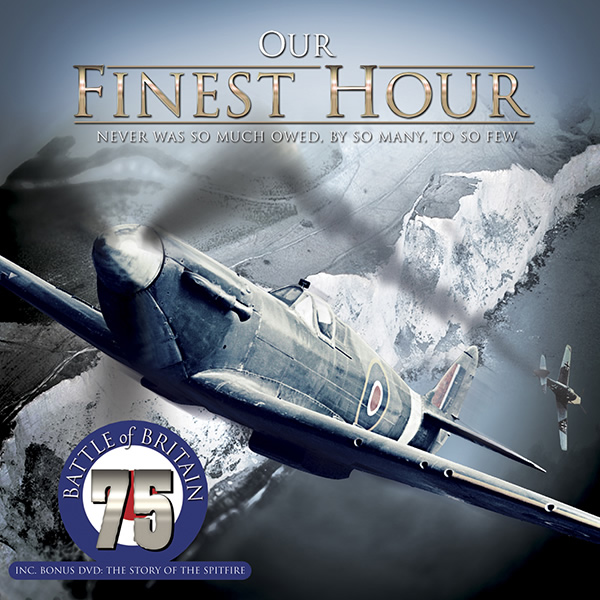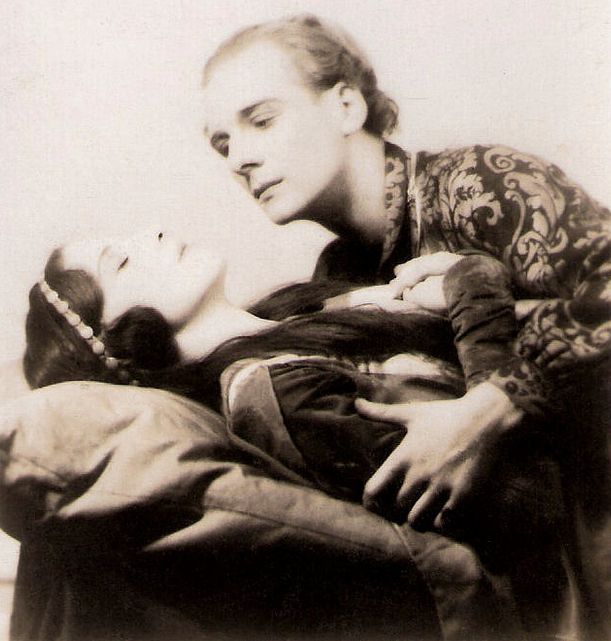Happy Birthday, Sir John Gielgud!
Posted by Ivan G. Shreve, Jr. on Apr 14th 2019
Sir John Gielgud made his cinematic debut in a 1924 silent film, Who is the Man? Yet the celebrated actor, born in South Kensington, London on this date in 1904, really didn’t commit to a movie career until he had reached his sixties, with memorable turns in such films as Becket (1964), The Loved One (1965), and Murder on the Orient Express (1974). Sir John had kept pretty busy in the interim, however, dominating the British stage along with contemporaries like Dame Peggy Ashcroft. With Sir Laurence Olivier and Sir Ralph Richardson, he formed what Alan Strachan dubbed a “great trinity of theatrical knights.”
The Terry family was a renowned theatrical dynasty, a clan of performers who started in the late 19th century and whose members weren’t just limited to those with the surname Terry (they were either blood relations or related by marriage)—they included Neilsons, Craigs …and Gielguds. John’s father Frank was not in the theatrical profession (he was a stockbroker), but his mother Kate had been a stage veteran until she got married. Young John’s interest in the footlights began at an early age, while he attended preparatory school at Hillside in Surrey. His early performances in school included Julius Caesar (as Mark Antony) and The Merchant of Venice (as Shylock).
John Gielgud’s scholastic achievements were insufficient to secure him a scholarship to prestigious universities like Eton or Rugby (where his elder brothers attended), so he settled as a “day boy” at Westminster School. Westminster enjoyed a proximity to the West End, which exposed Gielgud to stage legends like actress Sarah Bernhardt and ballet dancer Adeline Genée. His parents tried to discourage him from a theatrical career (Frank wanted him to become an architect), but John struck a deal upon leaving Westminster: if he was unable to make acting pan out by the time he reached25, he would settle for an office post.

John Gielgud enrolled in a private dramatic school run by Constance Benson, whose assessment of the would-be actor’s stage presence was that he “walked like a cat with rickets.” John would appear in amateur productions both before and after he entered dramatic school, eventually getting in with a professional company that, alas, did not pay him for his work. Gielgud would get a break through familial connections; his cousin, Phyllis Neilson-Terry, invited him to work with J.B. Fagan’s company as an assistant stage manager, understudy, and bit player. From there, a colleague recommended John to the Royal Academy of Dramatic Arts, where his fellow classmates included Claude Rains.
John Gielgud graced the cast of many a West End production throughout the 1920s (he did a number of Chekhov plays including The Cherry Orchard and Three Sisters). He also began working for BBC Radio, thanks to his distinctive speaking voice. (His biographer, Sheridan Morley, observed that Gielgud’s relationship with the BBC was “a medium he made his own for seventy years.”) In 1928, Sir John made his Broadway debut as the Grand Duke Alexander in a production of The Patriot; while the play closed after one week, the actor got rave reviews from the likes of Alexander Woolcott and Brooks Atkinson.
1929 would be a watershed year for John Gielgud: it was the year he was invited to join the company at the Old Vic, a company that staged performances of plays and operas for working-class audiences at reduced ticket prices. It was here that Gielgud would cement his theatrical immortality playing Hamlet (many believe that John was among the best to tackle the role), as well as appearing as “John Worthing” in Oscar Wilde’s The Importance of Being Earnest. It was here that John would also make the acquaintance of Ralph Richardson, and while the two men were polar opposites in terms of personality (Ralph was an outgoing extrovert, John a shy introvert), they would enjoy a friendship and professional association (on stage, TV, etc.) that would last until Sir Ralph’s passing in 1983.

One of the projects that Sirs John Gielgud and Ralph Richardson collaborated on was a series of BBC Radio dramatizations of tales featuring Arthur Conan Doyle’s legendary sleuth Sherlock Holmes. This series was rebroadcast over NBC in 1955, with Gielgud as Holmes and Richardson as Dr. Watson. This series is (sadly) often overlooked (in the opinion of Radio Spirits’ Elizabeth McLeod) among “Baker Street Irregulars.” (John’s older brother Val, who later became the head of drama at the BBC, not only directed many of the productions but fittingly played Mycroft to John’s Sherlock in one episode.) While most of Gielgud’s radio work was done for the Beeb (he continued on “the wireless” in the 1980s/1990s), he occasionally made the rounds on American radio—notably on The Theatre Guild on the Air.
Before his cinematic resurgence, John Gielgud appeared in the occasional silver screen presentation, such as 1933’s The Good Companions and the Alfred Hitchcock-directed Secret Agent (1936). Gielgud made his first Hollywood film in 1953, appearing as “Cassius” in the all-star MGM production of Julius Caesar (he would later credit learning much of his film technique to James Mason, who was also in the film). Other notable items on John’s cinematic resume include Richard III (1955), The Barretts of Wimpole Street (1957), The Charge of the Light Brigade (1968), Providence (1977), Murder by Decree (1979), and The Elephant Man (1980)…but his real movie claim-to-fame would arrive when he portrayed Dudley Moore’s acerbic butler Hobson in the classic comedy Arthur (1981). The role would nab Gielgud an Academy Award for Best Supporting Actor (he also agreed to reprise the role as a “ghost” in the ill-advised sequel, Arthur 2: On the Rocks [1988]) and lead to further movie triumphs in such films as Gandhi (1982), The Shooting Party (1984), Plenty (1985), Prospero’s Books (1991), First Knight (1996), and Elizabeth (1998). Sir John Gielgud (he was knighted in 1953) left this world for a better one in 2000 at the age of 96.

Though he expressed indifference when it came to winning awards, Sir John Gielgud is a member of the select group of performers nicknamed “EGOTs”—those who have won an Emmy, a Grammy, an Oscar, and a Tony (Gielgud won three in the last category). To celebrate Sir John’s natal anniversary, Radio Spirits invites you to check out Our Finest Hour, a DVD/CD collection spotlighting the sights and sounds of London circa 1940 as a great nation prepared for war (Gielgud reads “An Airmen’s Letter to His Mother”). We also feature John at his finest on radio with The Adventures of Sherlock Holmes, an 8-CD collection of classic BBC/NBC broadcasts with Gielgud as “the world’s greatest consulting detective” and his friend Sir Ralph Richardson as Dr. Watson. Happy Birthday, Sir John!

